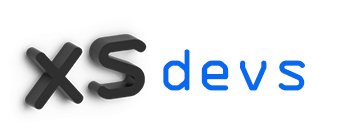Mobile app development has become a crucial aspect of the digital landscape, with billions of smartphone users worldwide. To streamline the app development process and create high-quality apps efficiently, developers often rely on frameworks. In this article, we will explore two popular frameworks, React Native and Flutter, and understand their features, benefits, and use cases.
Table of Contents
- Introduction to Mobile App Development Frameworks
- React Native: Building Native Apps with JavaScript
- Key Features
- Benefits
- Use Cases
- Flutter: Creating Beautiful Native Apps
- Key Features
- Benefits
- Use Cases
- Comparison between React Native and Flutter
- Performance
- Development Experience
- Community and Ecosystem
- Platform Support
- Choosing the Right Framework for Your Mobile App
- Conclusion
- FAQs
1. Introduction to Mobile App Development Frameworks
Mobile app development frameworks are software frameworks that provide pre-built components, libraries, and tools to simplify and expedite the app development process. These frameworks enable developers to build apps for multiple platforms using a single codebase, saving time and effort.
2. React Native: Building Native Apps with JavaScript
React Native, developed by Facebook, is a popular JavaScript framework for building native mobile apps. It allows developers to write code in JavaScript and create apps that run on both iOS and Android platforms. React Native leverages native components, resulting in highly performant and visually appealing apps.
Key Features of React Native
- Code Reusability: With React Native, developers can write code once and deploy it on multiple platforms, saving development time and effort.
- Native Performance: React Native apps utilize native components, ensuring high performance and a native-like user experience.
- Hot Reloading: React Native’s hot reloading feature allows developers to see real-time changes instantly, enhancing the development workflow and productivity.
Benefits of React Native
- Faster Development: By sharing a single codebase, developers can simultaneously develop apps for both iOS and Android platforms, significantly reducing development time.
- Native Look and Feel: React Native’s use of native components ensures that the apps look and feel like native apps, providing a seamless user experience.
- Large Developer Community: React Native has a vast and active developer community, offering support, libraries, and ready-made components that speed up development.
Use Cases of React Native
- Cross-platform Apps: React Native is ideal for building cross-platform apps that need to target both iOS and Android platforms while maintaining a native-like experience.
- Prototyping and MVP Development: React Native’s fast development cycle makes it suitable for prototyping and Minimum Viable Product (MVP) development, allowing quick validation of app ideas.
3. Flutter: Creating Beautiful Native Apps
Flutter, developed by Google, is an open-source UI toolkit for building natively compiled apps for mobile, web, and desktop platforms. It uses the Dart programming language and provides a rich set of customizable widgets for creating visually stunning and performant apps.
Key Features of Flutter
- Single Codebase: Flutter enables developers to write a single codebase that runs on multiple platforms, including iOS, Android, web, and desktop.
- Fast Rendering: Flutter’s architecture allows for efficient rendering and smooth animations, resulting in a responsive and visually appealing user interface.
- Widget-Based UI: Flutter’s widget-based approach allows developers to build flexible and customizable UIs using pre-built widgets or creating their own.
Benefits of Flutter
- Fast Performance: Flutter’s high-performance rendering engine ensures fast app startup, smooth animations, and excellent overall performance.
- Hot Reload: Similar to React Native, Flutter also offers hot reload functionality, enabling developers to see instant updates and iterate quickly.
- Consistent UI: Flutter provides a set of visually consistent and customizable widgets, ensuring a consistent UI experience across different platforms.
Use Cases of Flutter
- Cross-platform Apps: Flutter’s ability to target multiple platforms makes it a suitable choice for cross-platform app development, ensuring consistent branding and user experience.
- Highly Custom UI: Flutter’s widget-based UI framework allows developers to create visually stunning and highly custom UIs, making it suitable for apps that require unique and engaging designs.
4. Comparison between React Native and Flutter
While both React Native and Flutter are popular choices for cross-platform app development, they have distinct differences in various aspects:
Performance
- React Native: As React Native uses native components, it offers good performance. However, some complex UI interactions may have a slight performance lag due to the bridge communication between JavaScript and native code.
- Flutter: Flutter’s architecture and use of Dart’s native compilation provide excellent performance, with smooth animations and fast rendering.
Development Experience
- React Native: React Native’s development experience is highly regarded, as it allows developers familiar with JavaScript and React to transition smoothly into mobile app development.
- Flutter: Flutter’s widget-based approach and reactive framework offer a unique development experience, requiring developers to learn Dart but providing extensive widget customization options.
Community and Ecosystem
- React Native: React Native has a large and active community with numerous third-party libraries and pre-built components. It benefits from Facebook’s backing and ongoing development.
- Flutter: While Flutter’s community is growing rapidly, it is relatively smaller compared to React Native. However, Flutter’s official packages and widgets are comprehensive and well-maintained.
Platform Support
- React Native: React Native supports both iOS and Android platforms and has mature support for various device features and APIs.
- Flutter: Flutter supports iOS, Android, web, and desktop platforms, providing a broader range of platform coverage.
5. Choosing the Right Framework for Your Mobile App
When deciding between React Native and Flutter, consider factors such as the project requirements, development team’s familiarity with programming languages, target platforms, and the ecosystem and community support. Evaluate the pros and cons based on your specific needs to make an informed decision.
6. Conclusion
React Native and Flutter are powerful frameworks for mobile app development, each with its own strengths and use cases. Whether you choose React Native’s JavaScript-based approach or Flutter’s UI-centric Dart framework, both offer efficient ways to build cross-platform apps with native-like performance and functionality.
FAQs
- Q: Can React Native and Flutter be used to build complex and feature-rich apps? A: Yes, both React Native and Flutter are capable of building complex and feature-rich apps, leveraging native device capabilities and extensive third-party libraries.
- Q: Which framework is better for performance-critical apps? A: Flutter generally offers better performance due to its native compilation and rendering engine. However, React Native’s performance is also satisfactory for most applications.
- Q: Do React Native and Flutter support accessing device hardware features? A: Yes, both frameworks provide access to various device hardware features, such as camera, GPS, sensors, and more, through their respective APIs and third-party libraries.
- Q: Can existing React or JavaScript code be used in React Native? A: Yes, existing React components and JavaScript code can be reused in React Native, making it easier for developers with React experience to transition into mobile app development.
- Q: Does Flutter require separate UI development for each platform? A: No, Flutter uses a single codebase for multiple platforms, allowing developers to create a consistent UI that adapts to the platform’s design guidelines.

